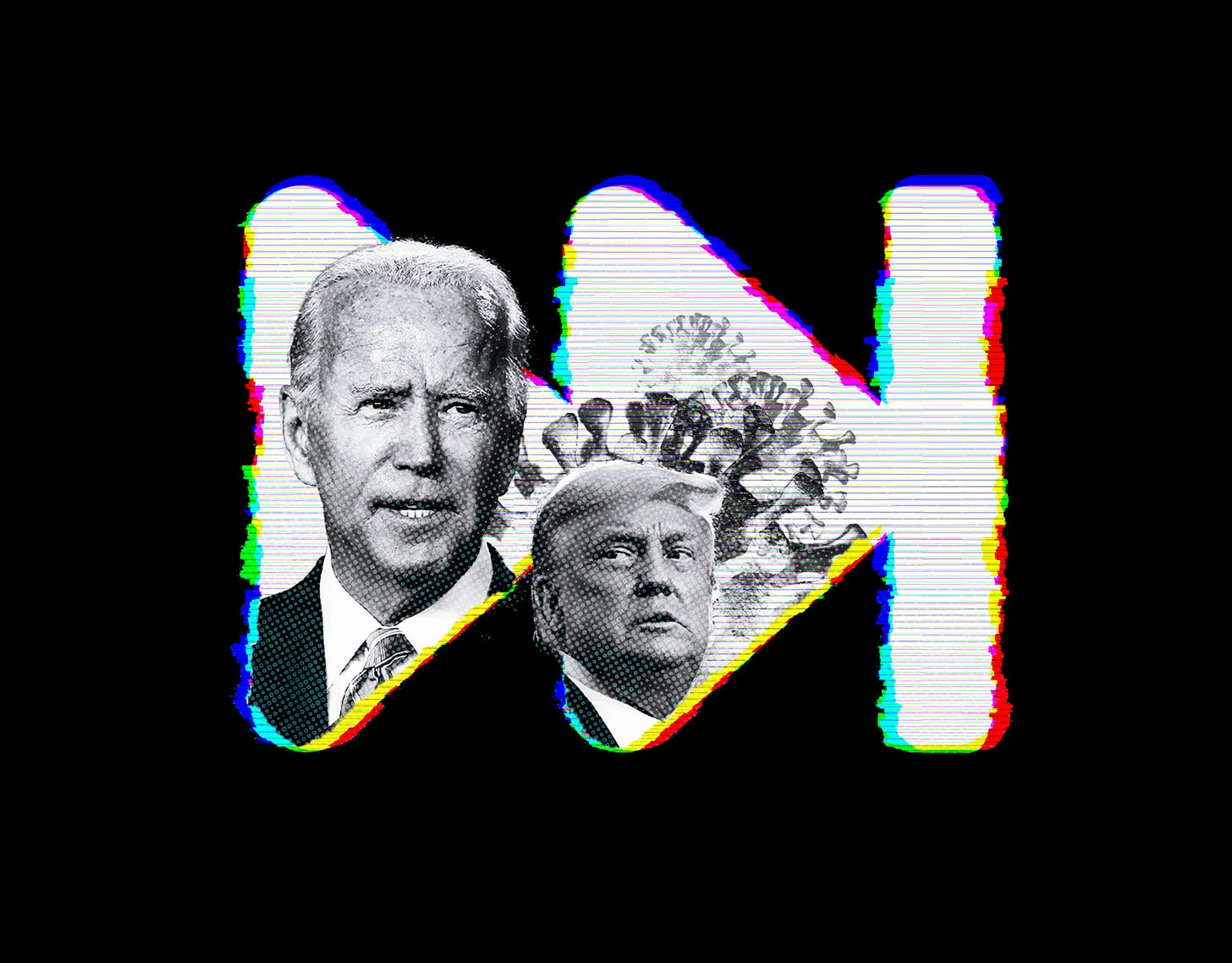
(1) People know what they don’t want.
Not everyone who wins in politics deserves to win, but pretty much everyone who loses deserves to lose, because it means they have lost the confidence of the electorate. Donald Trump is losing in the polls because he deserves to lose.
Trump has spent several years cultivating unlikeability and it has paid off. People do not like him. COVID and the economy mean this dislike has metastasized into a broader lack of confidence in him as president.
(2) But does Joe Biden deserve to win?
He is well-poised to do so, but paradoxically for Biden to win, he must keep the spotlight on Trump and not spend time talking about himself. Similarly, for Trump to win he must raise doubts about Biden. Biden is wisely playing a subdued role and letting Trump’s need for attention and inability to manage major challenges drive his own numbers down.
Biden is heeding Napoleon’s advice: “Never murder a man who is committing suicide.”
(3) Structure beats behavior.
Most of the election—let’s call it 75 percent—will be determined by structural factors: the economy and COVID.
The United States doesn’t need a full recovery in either for Trump to benefit. As long as there is a positive trend, people will feel better. It is plausible that by Election Day we could have had two months of improving economic numbers and this scenario could provide what Trump needs to win, even if the recovery is only partial.
But time is not on Trump’s side. The 1.8 million new jobs in the July numbers (released in August) are a good start but one month of strong economic numbers before an election is probably insufficient, as George H.W. Bush learned in 1992.
And it will take a few weeks of stable or improving COVID numbers to bring back business confidence. Early voting means the curtain starts coming down in September.
(4) This leaves 25 percent to be determined by behavioral and situational activity.
Meaning: campaign strategy and execution and candidate performance. Which includes the party conventions, Biden’s VP selection, and the debates. These events are more likely to be a series of one-day stories that do not materially change the polls. A candidate has to dramatically underperform during a debate (Gerald Ford’s discussion of Poland in 1976) for it to be consequential.
It’s best to analyze these behavioral events as threshold activities, meaning as long as a candidate hits a level of acceptable behavior, his base is happy.
(5) Biden wins August by default.
He’s the challenger and he will get to define himself to the American public through his acceptance speech. The speech will attract a wide audience and it’s the kind of scripted event where he tends to perform well.
(6) But Trump can win September.
The Trump scenario is that the economy sees modest improvement in September and some stability in the COVID numbers. Even if this is too little, too late, don’t be surprised if he closes his gap with Biden a bit. Races tend to tighten.
(7) Regression to the mean is not momentum.
Trump has hit lowest-low over the last eight weeks because even his numbers among Republicans have ticked downward. If he firms his base up in September, then the race will tighten.
But that would not really be electoral momentum. His base disliking him less is different than the public liking him more. In order for Trump to start gaining momentum, he’d have to start moving independents. Which he has been unable to do over the course of four years.
(8) We finish where we start.
There are always anomalies. Candidates will have good days and bad days; strong and weak debate performances; factual and grammatical mis-statements; tactical shrewdness and incompetence—and all of this will drive the public conversation on the race.
But there is no reason to believe that sheer competency and mental acuity are not evenly split in this race and that the net effect of these news items over the final three months is close to zero.
The voters might not be sure what they want. But they’re damn sure what they don’t want. And they’ve been certain of that since about March of 2017.










